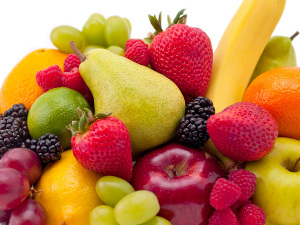Kroger awards first grants to help innovators fight food waste

Kroger has named the first innovative companies that will receive a grant from its foundation to help find solutions to fight food waste.
The Kroger Co. Zero Hunger | Zero Waste Foundation named the winners from nearly 400 applicants who submitted interest earlier this year during the first-ever open call.
The invitation welcomed innovators to submit ideas and solutions to prevent food waste for an opportunity to receive a grant, ranging from US$25,000 to US$250,000 per project, from the US$1 million designated for the first cohort.
"We know we can't accomplish this ambitious goal alone, so we supported the development of The Kroger Co. Zero Hunger | Zero Waste Foundation – a public charity established to work with social enterprises, corporations and non-profits that are committed to creating communities free of hunger and waste," said Jessica Adelman, president of the foundation.
"The Foundation's Innovation Fund was designed to bring like-minded organizations together as philanthropic disrupters – setting a new course on how to partner and change the world."
The first cohort of innovators were individually selected due to their "big ideas, shared vision and collaborative spirit" in reducing waste.
Key criteria included alignment with the program's mission, potential for positive impact in U.S. communities, ease of implementation, geography, and measurability and scalability.
The inaugural cohort features:
- Food Forest (Cincinnati, OH)
Food Forest uses technology to source products through multiple channels, maximizing fulfillment efficiencies and minimizing the carbon footprint of delivery logistics. The Food Forest app uses dynamic pricing and recommendations to offer incentives to customers and mitigate wasteful behavior. It also provides pop-up grocery pickup points to low-access, high-need neighborhoods. - Imperfect (San Francisco, CA)
Imperfect is a national online grocer creating a more sustainable and effective food system to better communities and the environment. The company sources imperfect produce and surplus food like grains, nuts, oil, bread, milk and cheese directly from farmers, growers and food purveyors and delivers these goods directly to customers' doors through a customizable subscription service. - mobius (Knoxville, TN)
mobius converts industrial organic waste streams from food, forestry and agriculture into renewable chemicals and materials as part of its mission to create a world where There's Wonder in Waste. Its first products are biodegradable plastics and polymers created from industrial organic waste, with applications focused in agriculture, horticulture, and food service packaging. - Replate (Berkeley, CA)
Replate creates technology to reliably redistribute surplus food from businesses and events directly to nonprofits in need. Leveraging the gig economy, it creates meaningful jobs while providing a simple platform for businesses and caterers to reduce their waste while supporting members of their community. - Ripe Revival (Greenville, NC)
Ripe Revival is an innovative food brand on a mission to reduce waste and feed those in need. Its nutrient-dense protein gummies are crafted utilizing proprietary extraction technology, providing a profitable solution for farmers' excess produce. Its products are packed with purpose, maximizing the potential of fruits and vegetables through nutritious, clean and fun foods. - Seal the Seasons (Chapel Hill, NC)
Seal the Seasons' mission is to increase access to local food by reducing on-farm food waste and providing family farms with a reliable income stream by selling locally- and regionally-grown frozen fruits and vegetables year-round. It partners with local family farms on a state-by-state basis to source local produce while in season, freeze it within 24 hours of picking, and sell it to local grocers in the grower's home region. - Winnow (Iowa City, IA)
Winnow builds artificial intelligence tools to help chefs measure food waste and provide stakeholders with transparent, measurable, and actionable data, helping run more profitable and sustainable kitchens. The data communicates food waste reduction opportunities and details where food is being lost—whether as a result of customer food preferences, preparation, storage, or overproduction issues.
The inaugural cohort will use the non-dilutive funding provided by the foundation to implement projects over the next 12 months in cities across the U.S.
"We're excited to see our inaugural cohort work toward meaningful and measurable solutions to prevent, recover and recycle food waste, with the possibility of reducing food waste by up to 7.2 million pounds," added Adelman.
The foundation will host additional open calls with a total seed funding commitment of US$10 million.










































